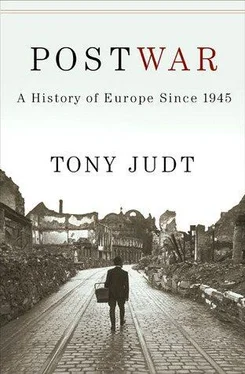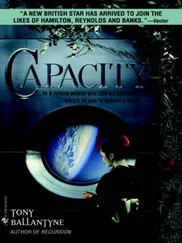Thus the post-war Bretton Woods system did not come about all at once. The participants at Bretton Woods had anticipated universal international convertibility by the end of the 1940s, but their calculations did not allow for the political and economic consequences of the coming of the Cold War (or, indeed, of the Marshall Plan). Put differently, the high ideals of those setting out plans and institutions for a better international system presumed a stable era of international cooperation from which all would gain. The Soviet Union was originally integral to the financial system proposed at Bretton Woods—it was to be the third-largest contributor to the International Monetary Fund quota. It was perhaps naïve for the Americans (and some British) to imagine that these proposals would be acceptable to Russian—or indeed French—policy-makers; in any case, they got around this impediment by the simple expedient of drawing up their plans without consulting the Russians or the French or anyone else.
Nevertheless, they sincerely expected that the mutual benefits to be had from an increase in international commerce and financial stability would eventually overcome national traditions and political mistrust. So when the Soviet Union abruptly announced, at the beginning of 1946, that it would not be joining the Bretton Woods institutions, the United States Treasury Department was genuinely bewildered; and it was to explain the thinking that lay behind Stalin’s move that George Kennan sent from Moscow, on the night of February 22nd 1946, his famous Long Telegram, the first significant move in America’s acknowledgement of the coming confrontation.
Putting the matter thus has the effect of depicting the makers of US foreign policy, Kennan aside, as remarkably innocent. And so, perhaps, they were, and not only those like Senator Estes Kefauver or Walter Lippmann, who simply refused to believe what they were told about Soviet actions in eastern Europe and elsewhere. At least through mid-1946, many US leaders spoke and acted as though they truly believedin the continuation of their wartime partnership with Stalin. Even Lucretius Patrascanu, a senior figure in the Romanian Communist leadership (and later victim of a show trial in his own country), was moved to comment, at the time of the Paris Peace Treaty negotiations in the summer of 1946, that ‘[t]he Americans are crazy. They are giving even more to the Russians than [they] are asking and expecting.’ [24] According to Kennan, ‘[O]ur national leaders in Washington had no idea at all, and would probably have been incapable of imagining, what a Soviet occupation, supported by the Russian secret police of Beria’s time, meant for the people who were subjected to it.’
But there was more to American policy than innocence. The United States in 1945 and for some time to come seriously expected to extricate itself from Europe as soon as possible, and was thus understandably keen to put in place a workable settlement that would not require American presence or supervision. This aspect of American post-war thinking is not well remembered or understood today, but it was uppermost in American calculations at the time—as Roosevelt had explained at Yalta, the US did not expect to remain in occupation of Germany (and thus in Europe) more than two years at most.
There was strong pressure on Truman to fulfill this undertaking. The abrupt ending of Lend-Lease was part of a general cutting back of economic and military commitments to Europe. The American defense budget was reduced by five-sixths between 1945 and 1947. At the end of the war in Europe the US had 97 combat-ready ground divisions in place; by mid-1947 there were just twelve divisions, most of them under strength and engaged in administrative tasks. The rest had gone home and been demobilized. This met the expectations of American voters, only 7 percent of whom in October 1945 placed foreign problems ahead of domestic concerns; but it played havoc with America’s European allies, who began seriously to fear a reprise of inter-war isolationism. They were only half-mistaken; as the British knew, in the event of a Soviet invasion of western Europe after 1945 American strategy consisted of an immediate retreat to peripheral bases in Britain, Spain and the Middle East.
But even as they were reducing their military commitment to Europe, American diplomats were being taken through a steep learning curve. The same Secretary Byrnes who had initially placed his faith in wartime accords and Soviet goodwill gave a speech at Stuttgart, on September 6th 1946, in which he sought to reassure his German audience: ‘As long as an occupation force is required in Germany, the Army of the United States will be a part of that occupation force.’ It was hardly a ringing commitment to European defense but, prompted perhaps by a letter from Truman in June (‘I’m tired of babying the Russians’), it reflected growing US frustration at the difficulty of working with the Soviet Union.
The Germans were not the only people who needed reassuring—the British especially were anxious at the Americans’ apparent desire to escape their European encumbrance. Britain was not universally loved in Washington. In a speech on April 12th 1946, Vice-President Henry Wallace reminded his audience that ‘aside from our common language and common literary tradition, we have no more in common with Imperialistic England than with Communist Russia’. Wallace, of course, was notoriously ‘soft’ on Communism, but his distaste for American involvement with Britain and Europe was widely shared across the political spectrum. When Winston Churchill gave his famous ‘iron curtain’ speech in Fulton, Missouri, in March 1946, the Wall Street Journal acidly commented: ‘The country’s reaction to Mr Churchill’s Fulton speech must be convincing proof that the US wants no alliance, or anything that resembles an alliance, with any other nation.’
Churchill above all would not have been surprised, either by Wallace or the editorialist of the Wall Street Journal . As early as 1943 he had taken the full measure of Roosevelt’s desire to see the liquidation of the British Empire—indeed, there were times when Roosevelt seemed at least as concerned with reducing post-war Britain as with containing Soviet Russia. If it is possible to speak of a coherent US strategy spanning the years 1944-47 it would be this: reach a continental European settlement with Stalin; pressure Britain to abandon its overseas empire and embrace open trade and sterling convertibility; and withdraw from Europe with all due speed. Of these, only the second objective was achieved—the third falling victim to the impossibility of the first.
The British perspective was quite different. A Cabinet sub-committee in 1944 listed four areas of primary concern to be borne in mind when dealing with the Soviet Union: i) Middle-Eastern oil; ii) the Mediterranean basin; iii) ‘vital sea communications’; iv) the maintenance and protection of British industrial strength. None of these, it might be noted, directly concerned Europe proper—except the second point, which explains British engagement in Greece. There was no mention of eastern Europe. If British leaders were wary in their dealings with Stalin it was not from any anxiety over his plans in central Europe but rather in anticipation of future Soviet moves in Central Asia and the Near East.
This made sense in the light of Britain’s continuing priorities—in East Asia, India, Africa and the Caribbean. But those selfsame Imperial illusions (as some, and not only in Washington, were already calling them) made British strategists much more realistic than their American allies when it came to Europe. From London’s point of view, the war had been fought to defeat Germany, and if the price for this was a Soviet imperium in eastern Europe, then that was how things would be. The British continued to see European affairs in terms of a balance of power: in the words of Sir William Strang, of the Foreign Office, ‘[i]t is better that Russia should dominate eastern Europe than that Germany should dominate western Europe’.
Читать дальше












